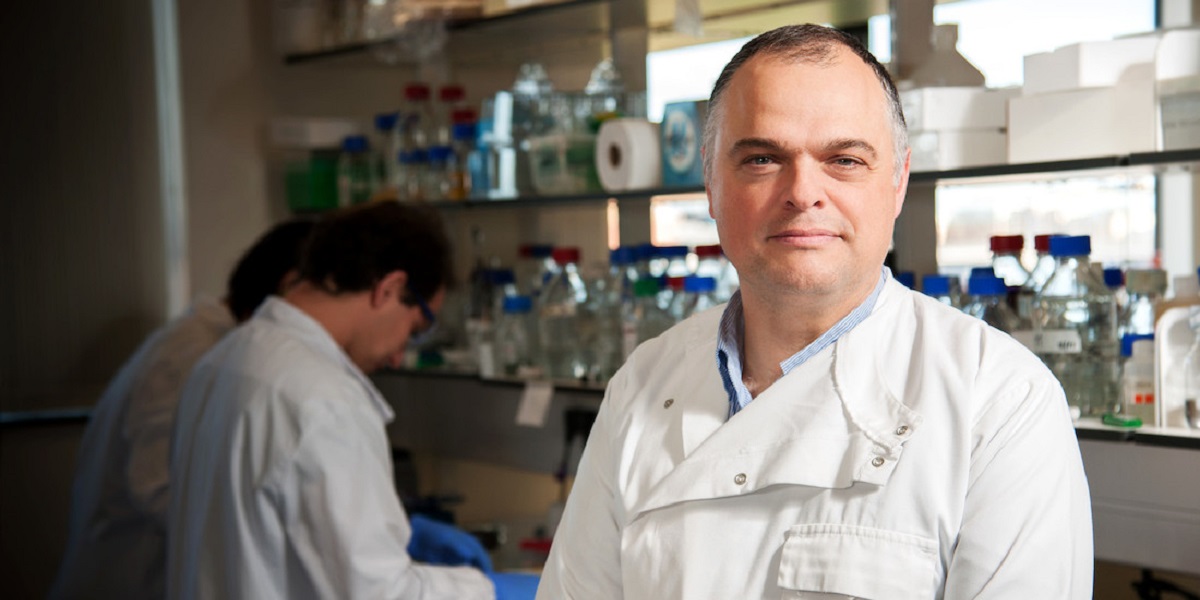EU Commission highlights Wellcome Wolfson Institute for Experimental Medicine Research
With a better understanding of how Klebsiella Pneumoniae evades our body's immune system, researchers with the EU-funded U-KARE project are developing new treatments based on boosting our defences against the potentially deadly disease.

Although a relatively common infection, some bacteria that causes pneumonia can be particularly deadly. As a case in point, take Klebsiella pneumoniae, which has been included on the World Health Organisation’s (WHO) list of infections that desperately need new treatments.
What makes K.pneumoniae so problematic is the increasing number of antibiotic-resistant Klebsiella strains. Perhaps even more alarming is the number of strains with access to a pool of genes that can make Klebsiella hypervirulent – essentially a superbug capable of causing untreatable infections by breaking down a host’s protective mechanisms. With virtually no treatment available, Klebsiella has been singled out as an ‘urgent threat to human health.’
Addressing this threat is the EU-funded U-KARE project. “The goal of this project was to better understand the immune evasion strategies of K. pneumoniae and, from this understanding, develop new therapeutic strategies based on boosting our defences and clearing the infection,” explains U-KARE researcher Jose Bengoechea.
Landmark discoveries
During the course of the U-KARE project, Bengoechea and his team of researchers made several important breakthroughs. For instance, they discovered that Klebsiella can survive inside macrophages, which are the cells that play an essential part in our immune system’s ability to fight K. pneumoniae. “As the antibiotics we currently use are inefficient at targeting bacteria that live inside our cells, this finding has important clinical implications on how we treat Klebsiella infections,” explains Bengoechea.
Researchers also discovered just how sophisticated Klebsiella’s immune evasion strategy is. Essentially, the pathogen can manipulate the functioning of our cells, rendering the proteins we use to fight infections useless. “What we see is a close relationship between Klebsiella’s antibiotic resistance and its virulence, or ability to infect a resistant host,” says Bengoechea. “These findings emphasise the importance of evaluating both antibiotic resistance and virulence in order to better monitor a patient’s outcome.”
Last but not least, in a landmark discovery, researchers uncovered the crucial role that interferons play in defending against Klebsiella infections. Interferons are a group of signalling proteins made and released by a virus-infected cell that causes nearby cells to heighten their anti-viral defences. “Interferons activate macrophages and natural killer cells to control Klebsiella pneumonia,” explains Bengoechea. “What this finding means is that interferons could be considered for new therapeutics developments.”
A host-directed therapeutic approach
Based on this research, Bengoechea was able to establish a pre-clinical research programme in his laboratory. Here he and his team are developing new therapeutics based on boosting our own defences against Klebsiella infections. “I believe this host-directed therapeutic approach will limit the pathogen’s ability to develop resistance against new treatments,” adds Bengoechea. “We already obtained very promising results in animal models in which, without the need for antibiotics, we were able to reduce the infection by more than 80 %.”
U-KARE’s research is ongoing, with the next major milestone being the launch of clinical trials in humans. “Although we are still at the very early stages, these potential new treatments will have a major health impact, especially considering the increasing number of Klebsiella infections worldwide and the limited treatment options available,” concludes Bengoechea.
Full EU Research and Innovation story
